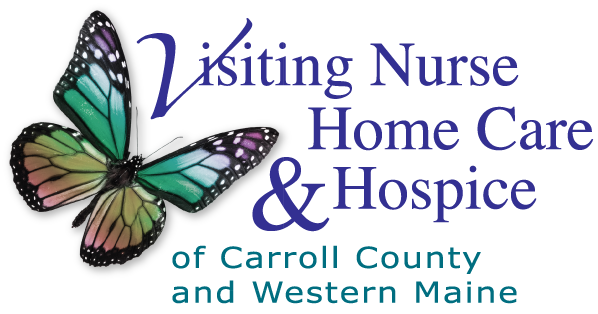Make A Resolution to Create or Update Your Advance Care Directives
January 10, 2023
)
Many make New Year Resolutions to exercise, eat better or break bad habits. But Visiting Nurse Home Care and Hospice of Carroll County and Western Maine has another suggestion for 2023 – create an advance care directive, or review and update directives you created in the past. It’s a great way to bring peace of mind in the new year.
All adults should discuss and document their healthcare wishes in the event of a crisis. Accidents and acute illness can happen to anyone at any time, but far too few adults have done anything to plan ahead. Various studies suggest that only about a quarter of all adults have engaged in advance care planning.
Completing advance care directives will give you a voice in making medical decisions if you become unable to understand or speak for yourself at the time such decisions are made. This can give you and your family/caregivers peace of mind because it allows them to understand and follow your wishes about your medical care.
Copies of your documents should be with your doctor, your hospital, or long-term care facility, the person you select as your agent, and members of your family. Ideally, the original documents should be stored where you keep your other important legal papers such as wills, birth certificates and social security cards. But they shoud not be stored in a safe, because this is a document you will want easily accessed.
VNHCH’s Community Liaison Jennifer Robinson helps people complete their advance care directives in their homes, at no cost. She explained, “I go to people’s homes to complete advance directives with them. I walk them through the process. I’m a notary too so I’m a one-stop shop! I tell them who to give their advance care directives to once they’re complete. If they are a patient of Saco River Medical Group or Memorial Hospital, I will deliver it there for them.”
“It’s an important document for anyone over the age of 18. It’s important not only because you want your wishes to be known, but it’s also a gift for your family. They don’t have to figure out what you would’ve wanted in a time that’s already stressful.”
Jennifer emphasized that the service is free. She recommends that every five years, or anytime you have a major medical event or change or diagnosis, you should review your advance care directives if you already have one to ensure it still reflects your wishes.
Jennifer is also available to groups or organizations who want to learn more about advance care directives. She has offered Zoom presentations on the topic through Cook Memorial Library in Tamworth. In the near future, she will be visiting caregivers at the MWV Adult Day Center to walk them through it.
Sandy Ruka, Executive Director of VNHCH, added, “It may be difficult to talk about it, but it can make a bad situation easier for loved ones and family in the wake of an accident or illness. While advance care planning includes decisions around end-of-life care, it also includes an individual’s wishes for any event in which they cannot speak for themselves. The New Year is a great time to think about this important topic so you’re prepared for whatever 2023 brings.”
Anyone wishing to create or update their advance care directives, or to arrange a group presentation, can call Jennifer at 603-356-7006 ext. 141.
You can also request a consult by going to the VNHCH website: https://tinyurl.com/VNHCHAdvanceDirectives
What is Advance Care Planning?
Advance care planning is making decisions about the care you would want to receive if you become unable to speak for yourself. These are your decisions to make, regardless of what you choose for your care, and the decisions are based on your personal values, preferences, and discussions with friends and family.
Advance care planning involves having a conversation with your loved ones about your preferences, and then documenting them with a document called an Advance Care Directive. In order to complete an Advance Care Directive you must identify the types of treatments you want and don’t want at the end of your life. It’s comprised of your Living Will and Health Care Proxy.
A Living Will details the types of medical treatments you would like or not like at the end of life, specifically in terms of life-support treatments.
A Health Care Proxy is someone who will make healthcare decisions on your behalf if you are no longer able to make your own decisions.
For more information about VNHCH services, visit the website at www.vnhch.org or call 603-356-7006 or 800-499-4171.
